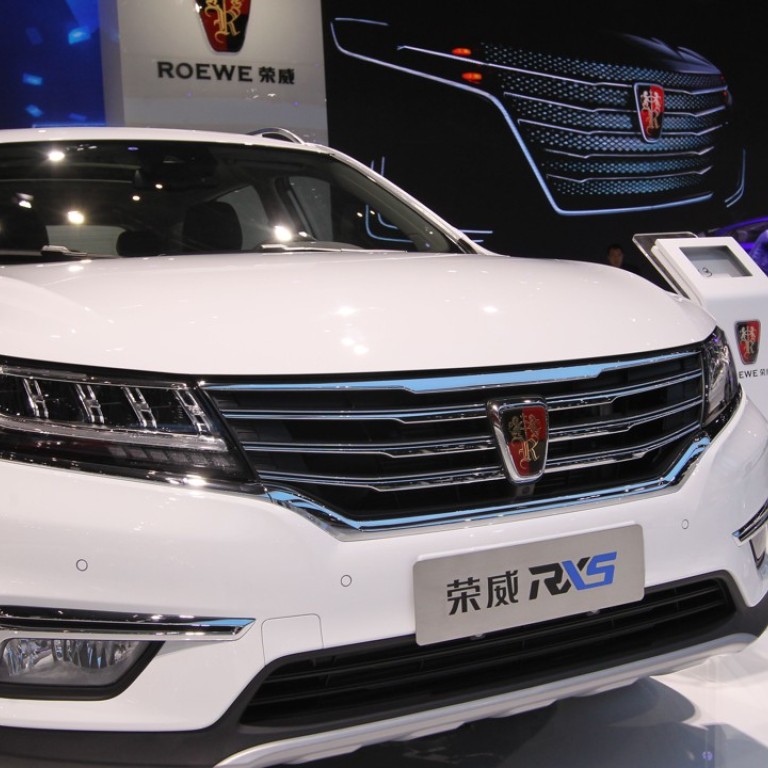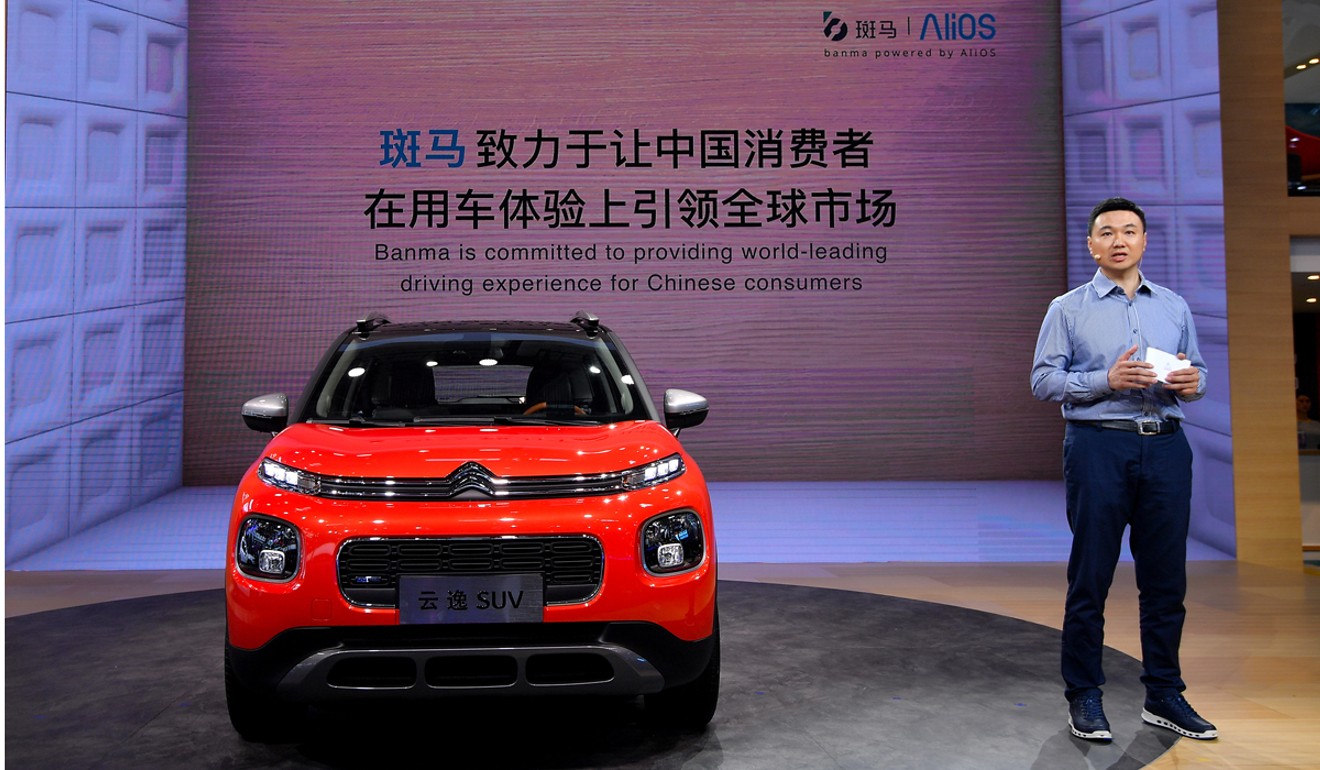
Alibaba-backed internet car firm Banma sees 6 million cars in China using its software by 2023
Hao Fei, CEO of Banma Technologies, expects adoption of its AliOS operating system to pick up pace as it looks to form partnerships with more carmakers
Banma Network Technologies, an internet car start-up backed by Alibaba Group Holding, plans to introduce new investors this year as it opens up the AliOS in-car operating system to developers and carmakers for research and development.
Hao Fei, chief executive of Banma, said the company is targeting partnerships with a clutch of mainland carmakers who are increasingly embracing digital technologies.
“We are edging closer to a new round of fundraising with the introduction of new investors,” he said. “We also need to take an open attitude to bring in more partners to work together for the future of internet-connected car industry.”
The CEO would not disclose the names of the investors and the amount of fresh capital to be raised.
By joining hands with more carmakers to develop internet cars, Banma, a portfolio firm in the Alibaba-SAIC investment fund, expects its operating system to be used in about 6 million vehicles produced on the mainland within five years. It is hoping to create an industry standard much like Google’s Android operating system.
China is the world’s largest car market, with production of passenger cars reaching 24.8 million in 2017.

Banma’s operating system is used in touchscreens, GPS maps and other functions normally found in smartphones to offer navigation, in-car entertainment and related value-added services such as car maintenance information to drivers and passengers.
In July 2016, Roewe fitted its RX5 sport-utility vehicle with the software, claiming it to be the world’s first mass-produced internet car.
The model was the sixth-best selling SUV in its class last year.
Presently, Banma’s only client is Dongfeng Peugeot Citroen.
Citroen said it will launch its first internet car based on the AliOS in September.
“The current focus is on expanding our partnerships with more developers and assemblers,” Hao said. “A big volume of production holds the key to the success of internet-connected cars.”
Banma was founded in 2015 as Alibaba, owner of the South China Morning Post, and SAIC, the mainland’s largest carmaker, set their sights on the next-generation of vehicles based on the internet of things technologies.
Meanwhile, sources said that SAIC General Motors was also looking to tie-up with Banma to develop internet cars.
Neither Hao nor GM would comment on the potential partnership.
Other mainland internet giants including Baidu and Tencent Holdings are also revving up development of next-generation vehicles by making the most of the latest technologies such as artificial intelligence.
Tencent is teaming with a group of key industry players including Chinese electric carmaker Nio to accelerate development of advanced driver assistant system (ADAS), one of the core AI technologies used in autonomous driving.
The development of ADAS alone is expected to create a market worth 100 billion yuan (US$15 billion) in 2020 based on an annualised compound growth rate of 35 per cent, according to Tencent.
Last year, Baidu launched its Project Apollo platform, one of the world’s largest and most diversified open autonomous driving alliances.
“Homogenisation has run its course in the car-making industry,” said Professor Ma Jun with Tongji University’s School of Automotive Studies. “In the new era, carmakers and internet firms will be inspired to build individualised products to cater to different groups of people.”

